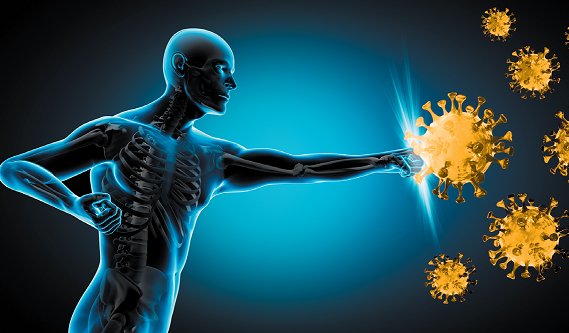Maximize Your Gains: Essential Post-Workout Recovery Tips for Optimal Performance

In the pursuit of fitness and wellness, achieving peak performance is not solely about pushing harder during workouts; it also involves understanding the critical importance of post-workout recovery.
As fitness enthusiasts, athletes, or even casual gym-goers, recognizing how to efficiently recover after intense physical activity can significantly enhance your performance and results.
In this article, we will explore effective strategies on post-workout recovery that can help you maximize your gains, ensuring that your body is adequately nourished, hydrated, and rested.
Whether you're looking to build muscle, increase endurance, or simply improve your overall fitness level, mastering the art of recovery is essential for anyone striving for excellence in their fitness journey.
View Our Luxury Cold Therapy Products 
Key Takeaways
- Post-workout recovery is crucial for muscle repair and performance enhancement.
- Effective nutrition post-workout aids in replenishing energy and promoting recovery.
- Hydration plays a key role in preventing fatigue and improving recovery speed.
- Incorporating stretching and foam rolling helps alleviate muscle soreness and improve flexibility.
- Rest and sufficient sleep are essential for maximizing recovery and overall performance.
Understanding Post-Workout Recovery: Why It Matters
Post-workout recovery is not just a mere afterthought in an athlete's journey; it is a critical phase that influences overall performance, health, and long-term progress.
Engaging in physical activity imposes stress on the body, leading to micro-tears in muscles, depleted energy stores, and potential dehydration.
Without adequate post-workout recovery, the body struggles to repair itself, which can hinder muscle growth, increase the risk of injury, and lead to fatigue.
Beyond mere soreness, effective post-workout recovery strategies—such as hydration, nutrition, and rest—ensure that athletes and fitness enthusiasts can bounce back stronger and faster for their next workout.
Emphasizing the importance of this recovery period not only supports physical health but also enhances mental resilience, making it an integral part of any successful fitness regimen.
By understanding and implementing proper post-workout recovery techniques, individuals can cultivate a sustainable approach to their fitness journey, motivating them to push their limits while safeguarding their bodies.
Key Elements of Effective Post-Workout Nutrition
Effective post-workout nutrition is crucial for optimal post-workout recovery, ensuring that your body has the necessary nutrients to repair and rebuild muscle tissue, restore energy levels, and enhance overall performance.
One of the key elements is protein, as it plays a vital role in muscle recovery.
Consuming protein-rich foods or supplements within 30 to 60 minutes after exercise can significantly improve muscle repair.
Additionally, carbohydrates are equally important, as they replenish glycogen stores depleted during your workout.
Incorporating healthy fats can also support hormonal balance and reduce inflammation.
Hydration, often overlooked, is essential for rehydrating the body and facilitating recovery processes.
Alongside these nutrients, timing is critical; establishing a balanced post-workout meal plan helps streamline recovery, enabling you to train harder and more frequently.
By prioritizing these key elements of effective post-workout nutrition, you can maximize your post-workout recovery and set yourself up for future fitness success.
'Take care of your body. It’s the only place you have to live.' – Jim RohnView Our Luxury Cold Therapy Products

The Role of Hydration in Recovery
Hydration plays a pivotal role in post-workout recovery, significantly impacting how quickly and effectively your body can repair itself after intense physical activity.
When you exercise, especially during prolonged or high-intensity workouts, your body loses water through sweat, which is essential for regulating body temperature and facilitating various physiological processes.
Adequate hydration helps to transport nutrients to muscle cells, remove toxins, and prevent muscle cramps.
To optimize your post-workout recovery, it is essential to not only replenish lost fluids but also to include electrolytes, which help maintain the balance of fluids in your body.
Aim for a combination of water, electrolyte-rich sports drinks, or natural sources like coconut water to support your recovery efforts.
Remember, an adequately hydrated body can enhance performance, increase energy levels, and promote faster recovery, allowing you to tackle your next workout with renewed vigor.
Incorporating Stretching and Foam Rolling Techniques
Post-workout recovery is an essential component of any fitness regimen, and incorporating stretching and foam rolling techniques can greatly enhance this recovery process.
Stretching after your workouts not only helps to alleviate muscle tightness but also improves flexibility and range of motion, which can prevent injuries and improve your performance in future workouts.
On the other hand, foam rolling serves as an effective self-myofascial release technique, targeting sore spots and knots in the muscles, promoting blood flow, and speeding up the recovery process.
Together, these practices create a comprehensive post-workout recovery routine that not only allows athletes and fitness enthusiasts to bounce back faster but also instills a sense of mindfulness and care towards their bodies.
So, whether you're an elite athlete or an everyday gym-goer, integrating stretching and foam rolling into your post-workout regimen is a powerful way to support your body’s recovery and enhance your overall fitness journey.

Rest and Sleep: The Powerful Recovery Tools
Rest and sleep are often overlooked when it comes to post-workout recovery, yet they are two of the most powerful tools in enhancing athletic performance and overall wellbeing.
When you push your body through rigorous training sessions, you create microscopic tears in your muscles that need time to heal.
Adequate sleep facilitates this recovery process by allowing the body to repair tissues and build new muscle fibers.
Moreover, during deep sleep stages, your body releases growth hormones that further enhance recovery and muscle growth.
Prioritizing restful nights and incorporating rest days into your workout regimen not only aids in efficient post-workout recovery but also helps prevent burnout and injuries.
To maximize these benefits, aim for 7-9 hours of quality sleep every night and listen to your body; it will guide you on when to rest and when to train harder.
By embracing sleep and rest as essential components of your fitness journey, you empower your body to perform at its peak and inspire others to recognize the importance of recovery in achieving their fitness goals.
Creating a Personalized Post-Workout Recovery Plan
Creating a personalized post-workout recovery plan is essential for anyone looking to enhance their fitness journey and prevent injuries.
Post-workout recovery involves various strategies aimed at restoring your body after intense physical activity, and a well-tailored plan can make a significant difference.
Start by assessing your individual needs based on your workout intensity, goals, and overall fitness level.
Incorporate hydration as a crucial first step, as rehydrating lost fluids helps in muscle recovery.
Follow this with a balanced meal or snack rich in proteins and carbohydrates to replenish your energy stores and support muscle repair.
For some, including stretching and foam rolling in your routine can alleviate muscle soreness and improve flexibility.
Lastly, prioritize rest and recovery by getting adequate sleep and considering days off from strenuous activities.
By implementing these components into your post-workout recovery plan, you not only enhance your performance but also inspire others to recognize the importance of rest in achieving their fitness goals.
Frequently Asked Questions
What is post-workout recovery and why is it important?
Post-workout recovery refers to the processes and strategies that help your body heal and adapt after exercise.
It is essential for reducing muscle soreness, preventing injury, replenishing energy stores, and ultimately improving performance in future workouts.
What are some key elements of effective post-workout nutrition?
Effective post-workout nutrition should include a combination of carbohydrates and proteins within 30-60 minutes after exercising.
Carbohydrates help replenish glycogen stores, while proteins assist in muscle repair and growth.
Why is hydration important for post-workout recovery?
Hydration is crucial for recovery because it helps restore lost fluids, aids in nutrient transport, and supports all bodily functions.
Dehydration can hinder performance and prolong soreness, making it vital to drink water or electrolyte-rich fluids after workouts.
How can stretching and foam rolling benefit recovery?
Stretching helps increase flexibility and range of motion, while foam rolling aids in muscle relaxation and can relieve tension, reducing soreness and improving circulation.
Both techniques can help promote recovery and prepare your body for future workouts.
How can I create a personalized post-workout recovery plan?
To create a personalized recovery plan, consider your workout intensity, duration, body type, and personal preferences.
Include elements such as nutrition, hydration, stretching, foam rolling, and sufficient rest and sleep.
Adjust your plan based on your body's response to recovery methods.




